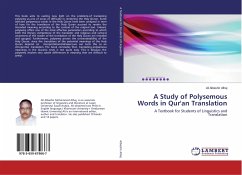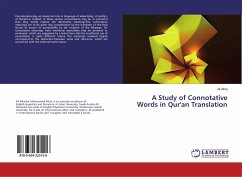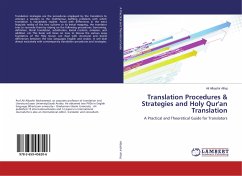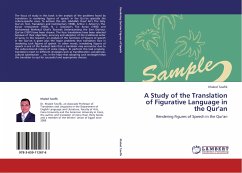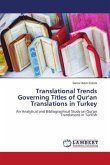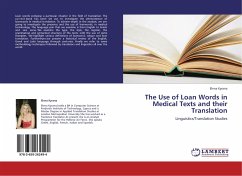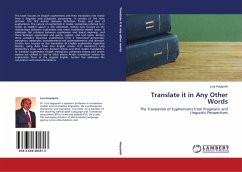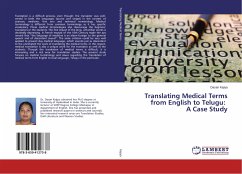This book aims to casting new light on the problems of translating polysemy as one of areas of difficulty in rendering the Holy Quran. Some selected polysemous words in the Holy Quran have been analyzed in term of how far the translators of the Holy Quran succeed to render the intended meaning according to the context of the original text. Indeed, polysemy offers one of the most effective parameters according to which both the literary competence of the translator and religious and cultural awareness of the reader of the translation of the Holy Quran are revealed and gauged. Furthermore, polysemy proves the untranslatability of the Holy Quran, since the translators of the potential meanings of the Holy Quran depend on interpretations(tafaseer),we can term this as an interpretive translation. The book concludes that, translating polysemous meanings in the Quranic texts is not quite easy. This is because the polysemy involves very subtle differences in meaning that are difficult tograsp.
Bitte wählen Sie Ihr Anliegen aus.
Rechnungen
Retourenschein anfordern
Bestellstatus
Storno

